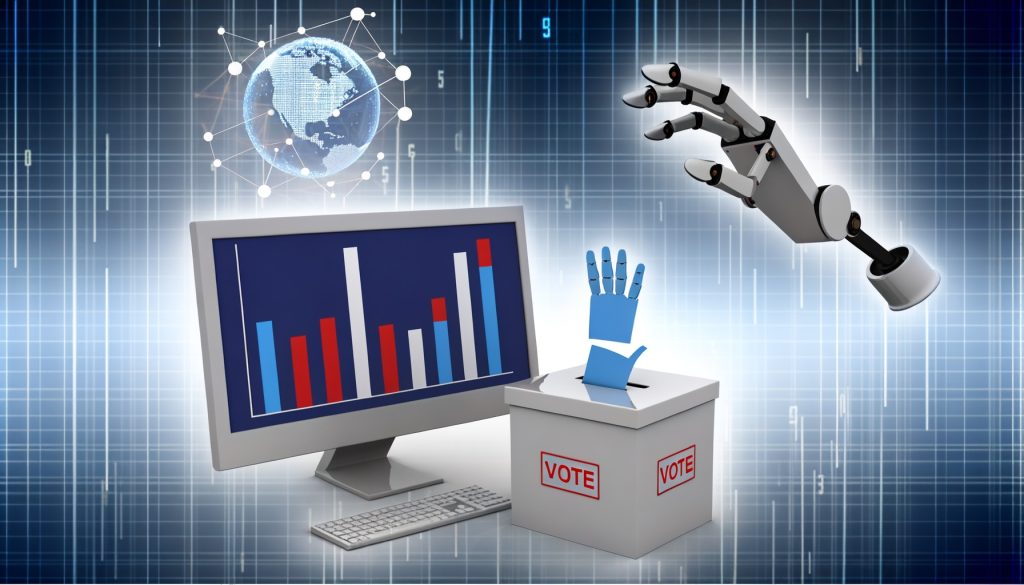Poll manipulation by AI threatens democratic accuracy, according to a new study
Dartmouth research shows AI can mimic human survey responses so accurately that only a few synthetic answers could flip national poll predictions and evade all detection methods.

Public opinion surveys face a growing threat as AI becomes capable of producing highly convincing fake responses. New research from Dartmouth shows that AI-generated answers can pass every quality check, imitate real human behaviour and alter poll predictions without leaving evidence.
In several major polls conducted before the 2024 US election, inserting only a few dozen synthetic responses would have reversed expected outcomes.
The study reveals how easily malicious actors could influence democratic processes. AI models can operate in multiple languages yet deliver flawless English answers, allowing foreign groups to bypass detection.
An autonomous synthetic respondent that was created for the study passed nearly all attention tests, avoided errors in logic puzzles and adjusted its tone to match assigned demographic profiles instead of exposing its artificial nature.
The potential consequences extend far beyond electoral polling. Many scientific disciplines rely heavily on survey data to track public health risks, measure consumer behaviour or study mental wellbeing.
If AI-generated answers infiltrate such datasets, the reliability of thousands of studies could be compromised, weakening evidence used to shape policy and guide academic research.
Financial incentives further raise the risk. Human participants earn modest fees, while AI can produce survey responses at almost no cost. Existing detection methods failed to identify the synthetic respondent at any stage.
The researcher urges survey companies to adopt new verification systems that confirm the human identity of participants, arguing that stronger safeguards are essential to protect democratic accountability and the wider research ecosystem.
Would you like to learn more about AI, tech and digital diplomacy? If so, ask our Diplo chatbot!
